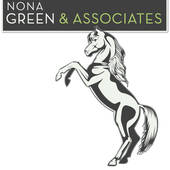Luxury homes with five or more bedrooms are in demand as sober living homes. Sober living business owners will pay hundreds or even thousands of dollars more per month than a typical renter. The extra cash is tempting landlords. The proliferation of sober homes is changing the character of upscale, low-density neighborhoods such as Monte Nido, Malibu and Cornell, and may be contributing to the shortage of available rental housing. A sober living home business owner recently leased, with an option to purchase, a home on Balkins in Old Agoura. Nearby homeowners are distraught over lights left on all night, constant traffic and noise, and the revolving door of strangers.
A sober living home provides a controlled environment where recovering alcoholics and addicts can replace destructive habits with new healthy ones. When it is well run, a sober living home is hardly recognizable from any other home with a large family. Others are a nightmare for the neighbors, causing excessive traffic, noise, cigarette smoke and light pollution. Sober home business owners like to choose homes in areas where there are minimum 1 acre lots, to minimize the potential for complaints. Sober living home business owners say that their tenants don't drink or party, don't have noisy children or pets, and are the ideal neighbors.
Why are they allowed next door? It's a business after all. The answer to that question can be confusing. State law deems addicts as handicapped - they are a protected class, and it is illegal to discriminate against them. So if they want to live in a typical residential neighborhood, that is their prerogative per state law, provided no more than six clients plus staff take residence. On the other hand, they are not allowed to be a nuisance or otherwise break any laws.
If you sell your home, do you need to disclose to someone who is buying your home, that "HAPPY HEALTHY RECOVERY HOUSE" is across the street? If they are a protected class, much like a minority race or religion, wouldn't it be discriminatory to say there was "one of those" across the street? It is the seller's statutory responsibility to disclose any material fact that might influence a buyer's decision to purchase the home. I have had buyers reject a home next to a sober living home out of concerns about criminal activity. Some buyers would think twice before buying next door or even on the same block. It would seem only fair that a buyer be given the opportunity to investigate whether the sober living home was the subject of any complaints or to inspect the street for cigarette butts or other paraphernalia. An attorney for the California Association of Realtors is advising brokers to disclose the known presence of a sober living home is in the vicinity.
Several municipalities have enacted ordinances that require sober living homes to obtain a license or maximize the distance between sober living homes. These are currently being challenged in the courts as being discriminatory. At the very least, sober living homes will be held to a high standard so that good ones simply thrive unnoticed, and bad ones are shuttered.
This article is copyright protected by Nona Green 2015 No part of this article may be re-printed without permission from the author.

Comments(1)